Abstract
Twenty patients surviving cardiac resuscitation following myocardial infarction were seen at least six months after the cardiac arrest. The patient and spouse were interviewed separately. Though they had not usually been informed by the medical staff, 16 of the 20 patients were aware that a cardiac arrest had occurred and had a good understanding of what this meant. Six patients remembered the start or end of the cardiac arrest and five specifically remembered external cardiac massage. Their feelings and their attitudes to the cardiac arrest are described.
Initial anxiety was experienced by all the patients and their spouses, particularly after hospital discharge, but in the long term only five patients failed to make a reasonably satisfactory adjustment. Poor rehabilitation seemed to be mainly associated with persisting physical disability and personality factors and not with features associated with the cardiac arrest, such as the duration of external cardiac massage. The spouses often found it difficult to know exactly how to treat the patients after hospital discharge and most patients and spouses felt that more explanation and discussion with the medical staff would have helped to alleviate anxiety.
Full text
PDF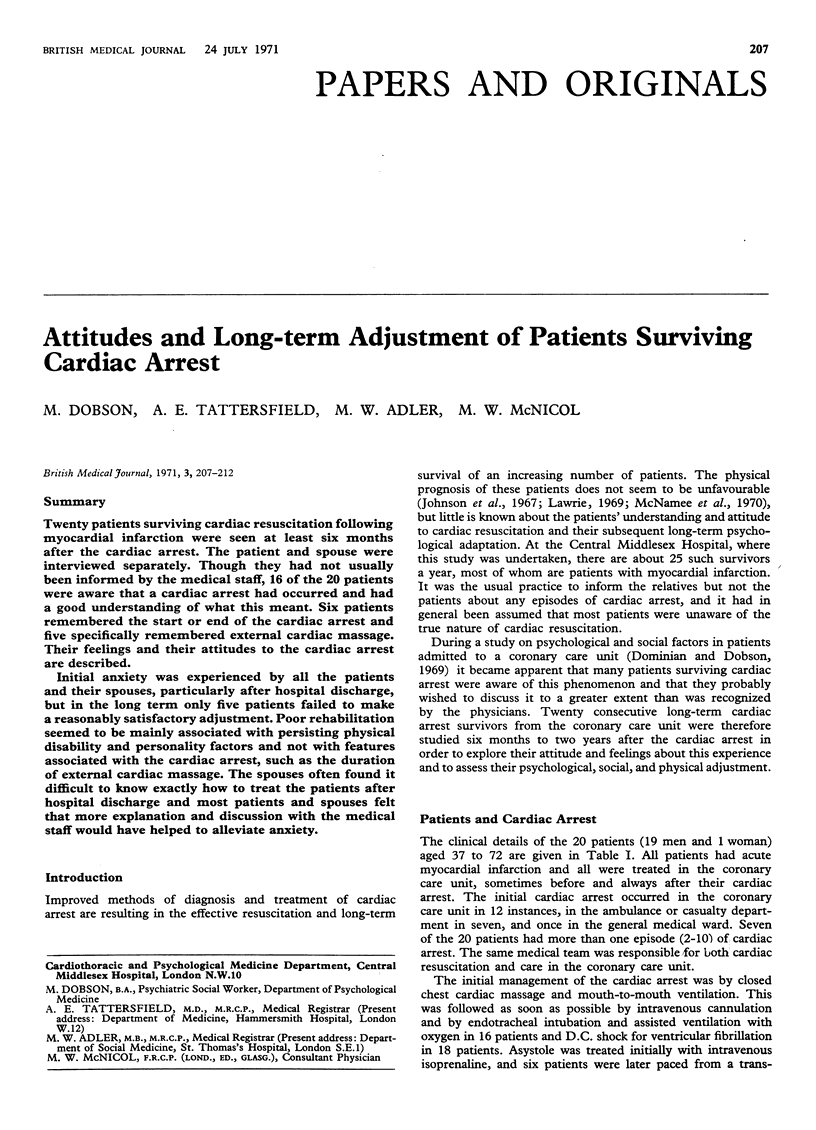
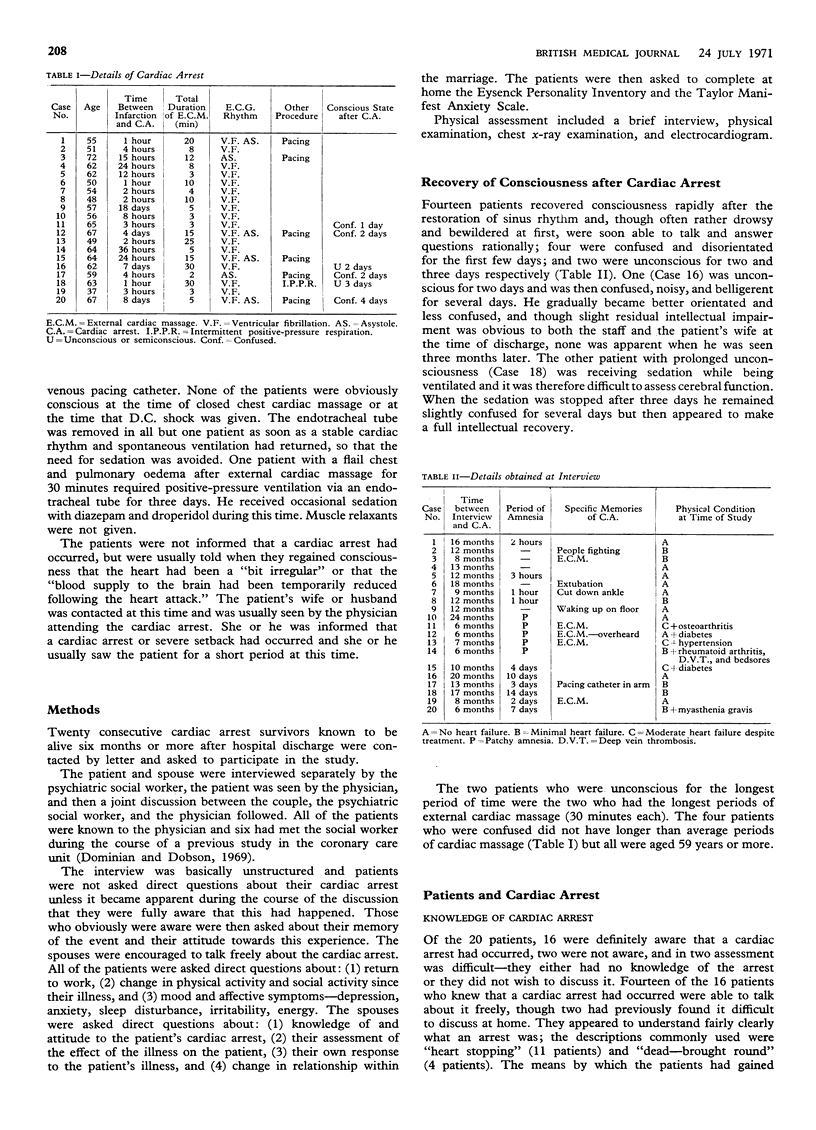
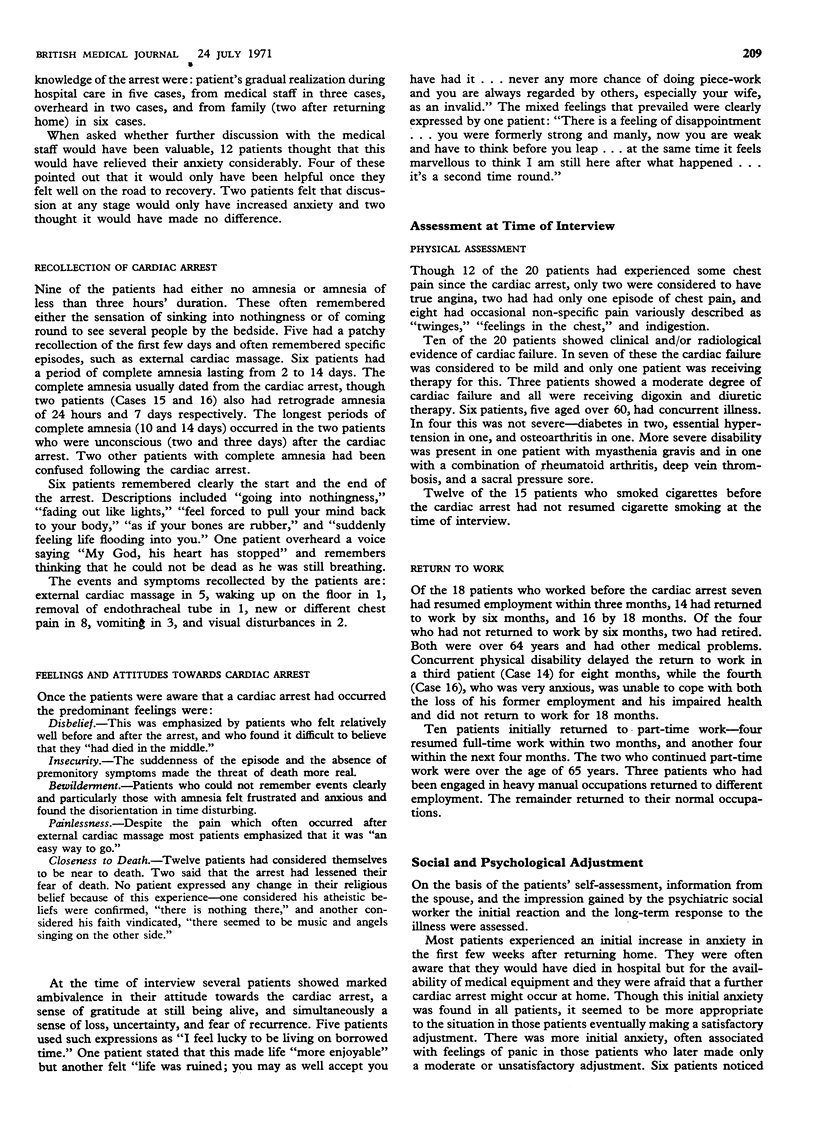
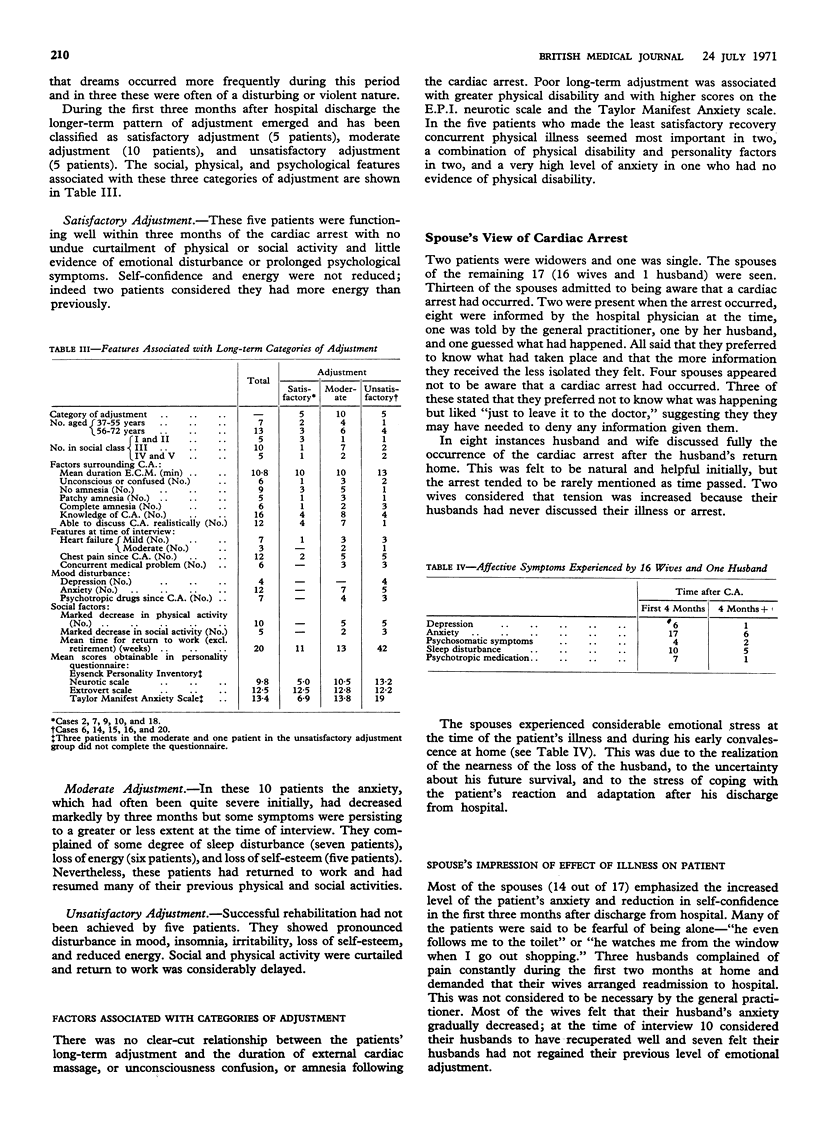
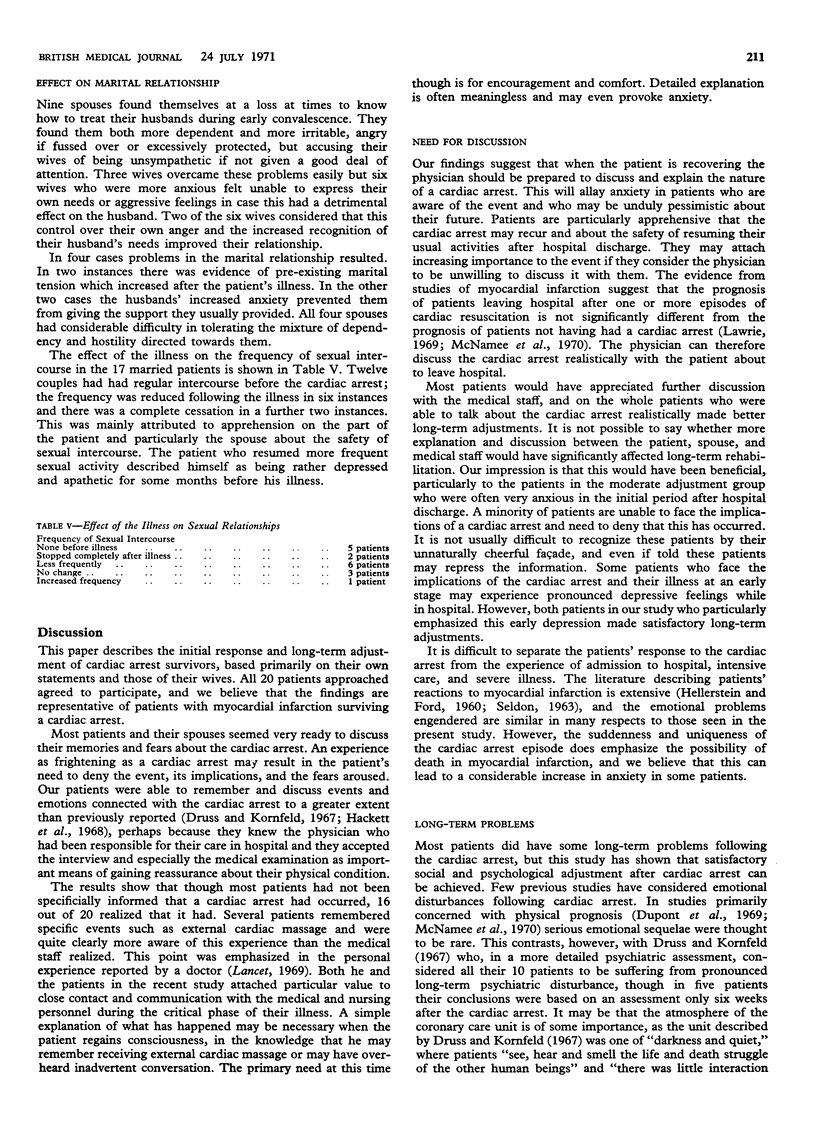
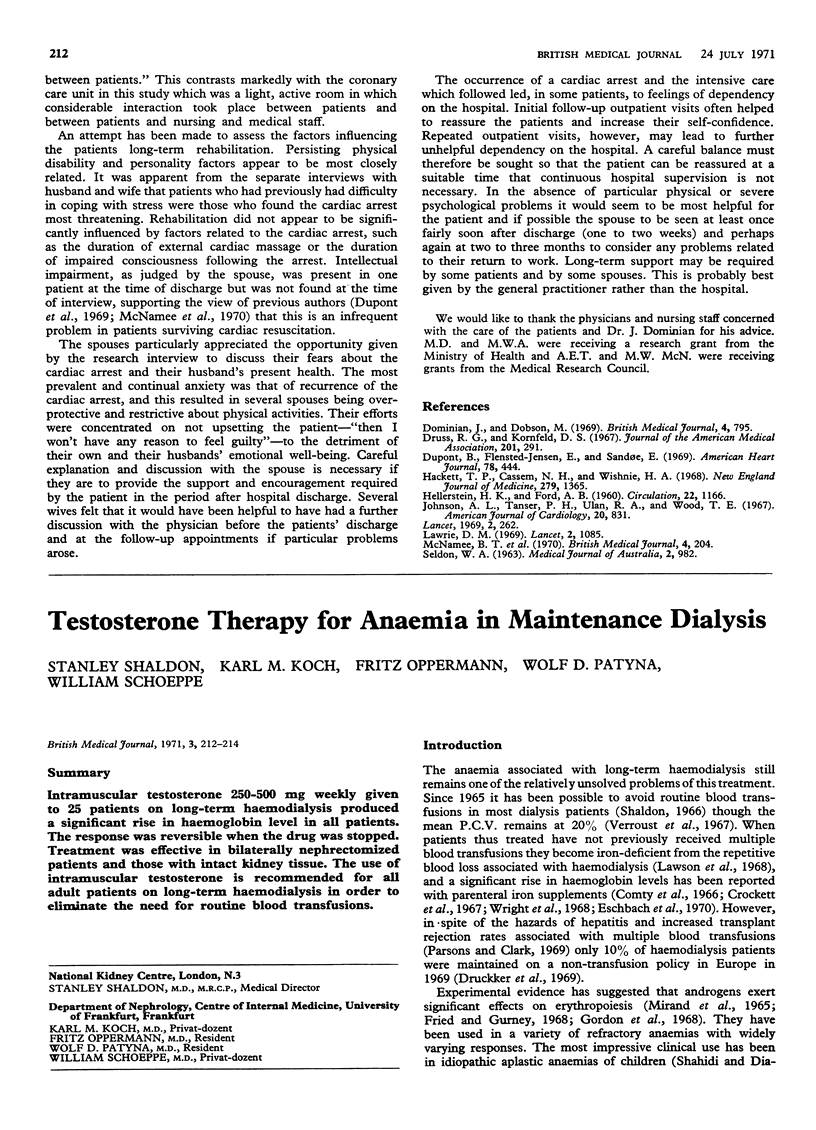
Selected References
These references are in PubMed. This may not be the complete list of references from this article.
- Dominian J., Dobson M. Study of patients' psychological attitudes to a coronary care unit. Br Med J. 1969 Dec 27;4(5686):795–798. doi: 10.1136/bmj.4.5686.795. [DOI] [PMC free article] [PubMed] [Google Scholar]
- Druss R. G., Kornfeld D. S. The survivors of cardiac arrest. A psychiatric study. JAMA. 1967 Jul 31;201(5):291–296. [PubMed] [Google Scholar]
- Dupont B., Flensted-Jensen E., Sandoe E. The long-term prognosis for patients resuscitated after cardiac arrest. A follow-up study. Am Heart J. 1969 Oct;78(4):444–449. doi: 10.1016/0002-8703(69)90477-3. [DOI] [PubMed] [Google Scholar]
- HELLERSTEIN H. K., FORD A. B. Comprehensive care of the coronary patient; a challenge to the physician. Circulation. 1960 Dec;22:1166–1178. doi: 10.1161/01.cir.22.6.1166. [DOI] [PubMed] [Google Scholar]
- Hackett T. P., Cassem N. H., Wishnie H. A. The coronary-care unit. An appraisal of its psychologic hazards. N Engl J Med. 1968 Dec 19;279(25):1365–1370. doi: 10.1056/NEJM196812192792504. [DOI] [PubMed] [Google Scholar]
- Johnson A. L., Tanser P. H., Ulan R. A., Wood T. E. Results of cardiac resuscitation in 552 patients. Am J Cardiol. 1967 Dec;20(6):831–835. doi: 10.1016/0002-9149(67)90397-9. [DOI] [PubMed] [Google Scholar]
- Lawrie D. M. Long-term survival after ventricular fibrillation complicating acute myocardial infarction. Lancet. 1969 Nov 22;2(7630):1085–1087. doi: 10.1016/s0140-6736(69)90697-7. [DOI] [PubMed] [Google Scholar]
- SELDON W. A. CARDIAC REHABILITATION: REPORT OF FIRST SIX MONTHS' EXPERIENCE IN A REHABILITATION UNIT. Med J Aust. 1963 Dec 14;2:982–985. [PubMed] [Google Scholar]


